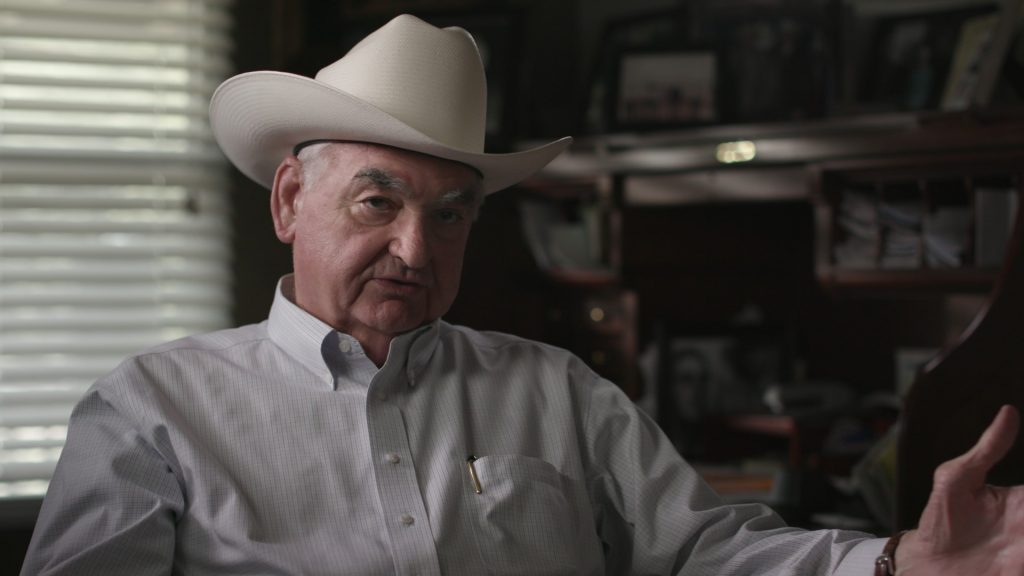Read also:
How to Watch FX Live Without CableHow To Watch AMC Without CableHow to Watch ABC Without CableHow to Watch Paramount Network Without CableRobert Kenner and Taki Oldham tackle the curious case of a man who’s confessed to too many crimes.
Any podcast listener will tell you that the True Crime genre reigns supreme in the podcast charts, with heavy hitters like Serial, Casefile, Crime Junkie, and My Favorite Murder (that behemoth of questionable quality) being constants in watercooler conversation. But America’s obsession with true crime is nothing new. Crime sensationalism is as baked into our cultural identity as con men and Coca-Cola™. What Netflix’s new documentary series The Confession Killer asks is: what is the line between investigation and sensationalism? When serial killers and the law enforcement that pursues them become celebrities, how do we maintain objectivity when seeking the truth?
At first, the story of Henry Lee Lucas appears straightforward: a rough-and-tumble drifter who was the likely suspect in the killing of 82-year old Kate Rich and 15-year old Becky Powell in North Texas, Lucas shocked law enforcement by not only confessing to the murders of Rich and Powell but 100 other women as well. Archive footage of Lucas’ arraignment shows the kind of courtroom chaos you’d expect to see on your average episode of How To Get Away With Murder. “What are you going to do about the hundred other women I killed?”
From there, the number of killings Lucas confessed to grew. 150 victims. 360 victims. 600 victims. Lucas confessed to them all, from the Louisiana woods to the streets of Seattle. If this sounds impossible, that’s because it is. It was all a lie, perpetuated by Lucas and his confabulation, encouraged by law enforcement.

Directors Robert Kenner and Taki Oldham wisely choose to make the task force set up to investigate Lucas the primary focus of their 5-part limited series. It’s a frank portrayal of law enforcement at its most fascinating and frustrating, with players bucking up against the thin blue line, sometimes from within the criminal justice system.
Sheriff Jim Boutwell is a larger-than-life figure, in his white shirt and Stetson hat, the avatar of every Texas Ranger. Boutwell appeared to have developed a rapport with Lucas, almost a kinship, plying him with cigarettes and strawberry milkshakes while giving him unfettered access to case files. Names, locations, minute details of the crimes were all gently fed to the man, who repeated these details back in his confessions. Lucas, perhaps being shown deference and courtesy for the first time in his life, is only too happy to oblige.
As the confessions began to stack up, so did the problems with Lucas’ stories. How could he be so many places in such a short time? That Lucas was a drifter who lived on the road was never in doubt, but even the best drifter would have a difficult time traveling 11,000 miles in 4 days without ever once stopping for a cup of coffee or a gallon of gas. And then there’s the variety of victims… men, women, children, of every creed and color. As a former FBI profiler says in one episode “The only pattern that exists here is that there is no pattern.”
When serial killers and the law enforcement that pursues them become celebrities, how do we maintain objectivity when seeking the truth?
The latter episodes provide more twists and turns than a country road, with layered stories about the task force closing ranks against a journalist willing to expose Lucas as a fraud, a newly sworn-in District Attorney whose refusal to accept Lucas’ confessions makes him an enemy of the Texas Rangers, and the hellish torment of the victim’s families.
To this day law enforcement refuses to open many of the cases that Lucas confessed to, leaving those families to wonder who really killed their loved ones and if the perpetrators are still out there. Whether these refusals are borne out of pride or embarrassment, in the end, it serves to show a significant loss of trust between the public and the authorities sworn to protect it. The Confession Killer is not so much a story of Henry Lee Lucas, but a scathing indictment of the lengths law enforcement will go to in order to control its own narrative.
The Confession Killer is currently available on Netflix.